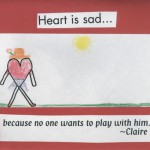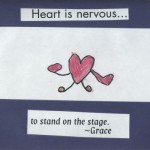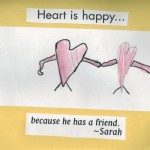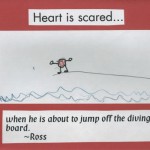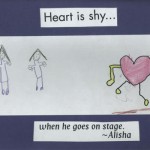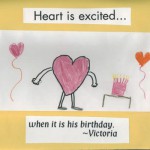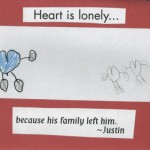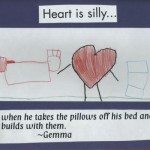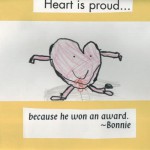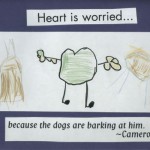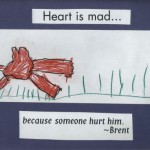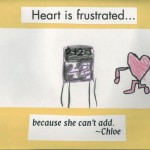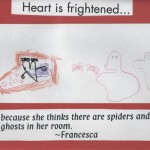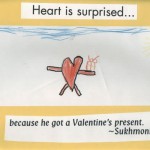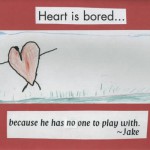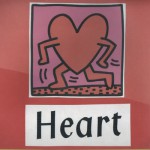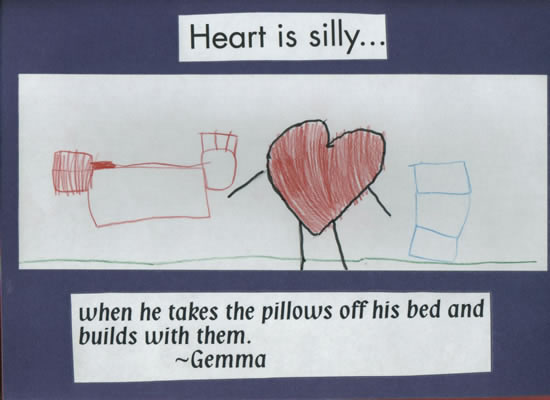
Categories
- Curriculum: Art, Holiday Favorites, Language Arts
- Age/Grade: Elementary 1, Elementary 2, Elementary 3
- Subject: Drawing, Writing
- Materials: Crayons, Markers, Pencils
- Institution: Bishop Strachan School
- Location: Toronto, Canada
- Duration: 1 - 2 Classes
Description
An explorative lesson that stimulates language skills while aiding in the development of social and emotional awareness.
Objective
To explore emotions and Haring imagery through a language arts activity.
To create a cooperatively written Class Big Book which can be borrowed from the classroom and taken home to read.
Resources
Big Book | Hardcover | $6.95
Love | Hardcover | $12.95
Materials
Pencils
Paper
Crayons or Markers
Procedure
Show the class the Haring character who I have named "Heart". He is a heart shaped character with arms and legs and can be found in various Haring publications. He is faceless and can therefore represent any emotion. Tell the class they are going to make a Big Book about Heart.
After discussing emotions, and reading various stories about emotions, have a class discussion and make a list of as many different emotions as you can. Add more as necessary so that there is one emotion for each child in your class. Some emotions may mean relatively the same thing (angry and mad) as long as you have covered a wide variety and used as many terms as possible. Younger children who cannot yet write their own sentences should follow this lesson:
Have sentence starters typed up already on strips of paper. For example, "Heart is embarrassed?" or "Heart is nervous?" There will be one for every student. Work in small groups if necessary. Have each student choose a sentence starter. Make sure they understand the emotion they have chosen for he/she must finish the sentence prompted by asking questions "Why is Heart embarrassed? When is Heart nervous?, etc." Write down their completed sentence for them. For example, "Heart is excited? when he goes to visit his grandma." Explain Heart can be a male or female. Later you will type their words up on strips as well. At the time when the student has completed the sentence, ask him/her to illustrate that sentence and emotion using Heart in the picture. Show the class how easy it is to draw Heart like Keith did?.a heart shape with arms and legs. Some students will even add hands and feet. Faces, as in Haring's work, are not necessary. Leave it as open ended as possible (Heart can be any colour if you wish). What is important is the context and environment they draw around Heart to show that particular emotion. Discuss how each person's "Heart" will look different and that's what makes it so interesting. Each page of your Big Book will look like this: A sentence starter strip at the top, the illustration below, the child's words to complete the sentence under the illustration, and the name of the author/artist for that page at the bottom of the page. Create a cover, titled "Heart" with a photocopied or scanned image of Haring's heart character on it. Laminate each page and bind the book in a spiral.
Extensions
Read the book to the class when it is finished.br>
Older students can obviously write their own sentences, again reserving one emotion per student.
